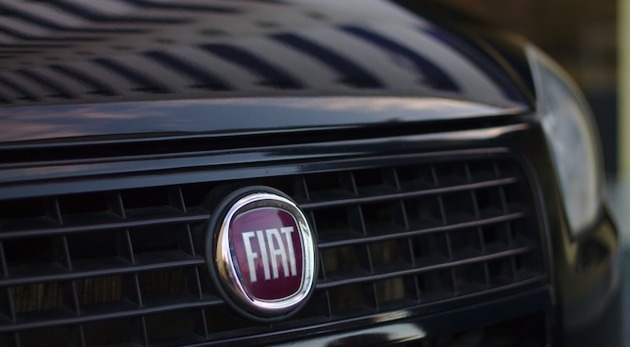Sept. 11 (NBD) -- The fate of Italian car brand Fiat in China is extremely worrying.
Data shows the label sold only 80 Viaggio and 21 Ottimo cars in the Chinese market in the first seven months of this year, whereas sales of the two locally-produced models in the country totaled 2,273 units last year.
A number of 4S stores of Fiat have discontinued the sale of the two models. However, the models are still displayed on the web portal of GAC Fiat Chrysler Automobiles Co., Ltd., a 50-50 joint venture between GAC Group and Fiat Chrysler Automobiles (FCA).
The dismal sales indicates the Fiat brand is being marginalized in China.

Photo/Shetuwang
In fact, Fiat entered the Chinese market early, with a history of around 20 years in the country. At the beginning, the marque, through the joint venture with Nanjing Automobile Group Co., Ltd., received remarkably high praises in the small and compact car segments with the introduction of the Palio, Siena, and other compact family cars. However, because of slow pace in product upgrading, Fiat gradually lost its ground to other brands. In December 2007, the joint venture with Nanjing Automobile retreated from the market due to depressed sales.
Reluctant to give up the Chinese market, Fiat staged a comeback via a partnership with GAC Group which has richer experience in car manufacturing. With the launch of more stylish models, the car brand saw its sales climb constantly from 2012 to 2014.
The strong growth momentum, however, didn't last long. Following the completion of Fiat's acquisition of Chrysler in 2014, the newly established FCA shifted its focus to the revitalization of the Jeep brand worldwide, as SUVs were taking both North America and China by storm. This shift in strategy put Fiat's development in China in trouble again.
The Fiat marque fell completely out of favor following the localization of Jeep models. The Jeep brand instantly captured the heart of Chinese consumers, generating sales of 400,000 units in a mere three years. The swift sales growth of Jeep models in China strengthened FCA's determination to further develop the brand.
According to the newest strategic roadmap unveiled by then-CEO Sergio Marchionne in June, FCA would prioritize the Jeep and Maserati brands and push forward the electrification plan. Helped by the Jeep label, FCA expects to double adjusted operating profits in 2022, Marchionne once said.
In recent years, more carmakers have quitted the Chinese market as competition in the car market gets increasingly intensified.
A week ago, Suzuki Motor, the Japanese manufacturer known for its minicars, exited China as consumers in the world's biggest auto market shifted to favor larger sedans and SUVs. In 2014, 21 years after Opel's entry into China, General Motors declared the withdrawal of the sub-brand from the country. In the same year, Volkswagen announced the retreat of its Seat brand from the nation.
The setbacks of all these car brands were largely caused by their tardy responses to changing needs of Chinese consumers.
To gain a firm foothold in the fast-growing Chinese market, automakers should have a deep understanding of diverse needs of consumers, and act proactively in upgrading models.
Email: lansuying@nbd.com.cn


 川公网安备 51019002001991号
川公网安备 51019002001991号





